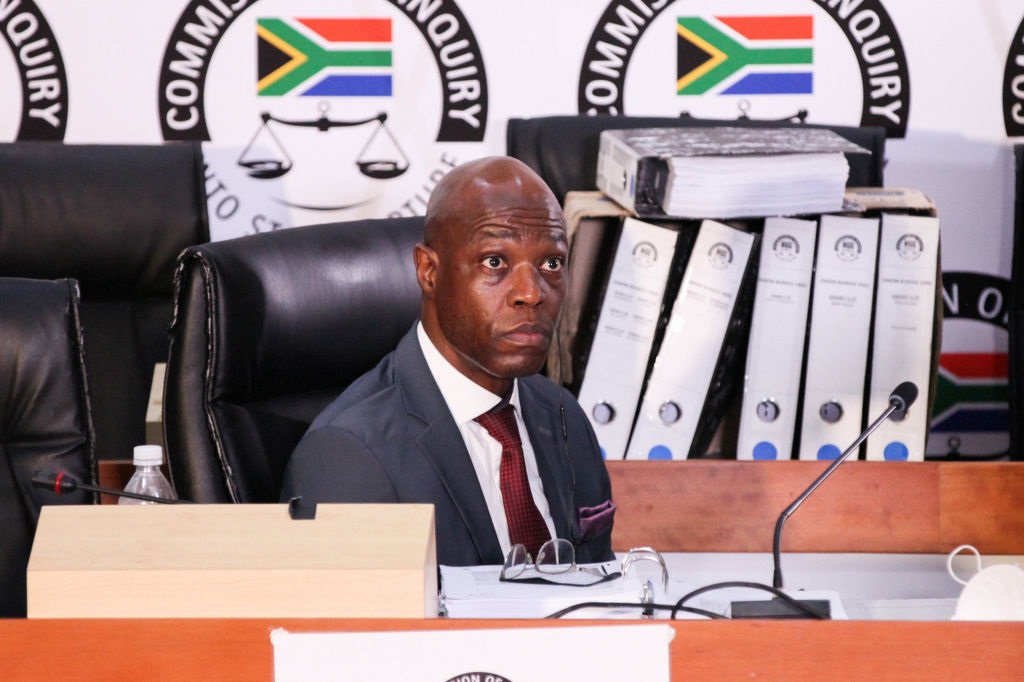
- Eskom is struggling through a period of the highest levels of unplanned breakdowns in the company's recent history.
- A News24 investigation found that policies and procedures introduced in 2016 by Matshela Koko are linked to an alleged manipulation of official performance statistics.
- The policies, senior Eskom officials agree, led to increased unreliability in recent years.
A major data investigation by News24 published on Monday revealed that policies and practices introduced at Eskom by former interim group chief executive Matshela Koko seemingly led to widespread manipulation of official performance statistics.
Read the full report here.
During Koko's tenure, there was no load shedding and expensive, diesel-burning Open-Cycle Gas Turbines (OCGTs) were not used to meet peak demand. On paper, for 2016 and 2017, Eskom performed better than it had in decades.
The Eskom Files | Find all related stories
But News24's investigation has shown that the improvement in performance came at a high cost. According to data obtained from Eskom and documents contained in The Eskom Files:
- Koko introduced a management system which incentivised fewer breakdowns at power stations;
- This system included the payment of bonuses to top performing power station managers, or power station managers with the least number of breakdowns;
- This led to a dramatic decrease of unplanned breakdowns during his tenure in senior generation positions at Eskom;
- Unplanned breakdowns were a regular occurrence before Koko's tenure, and again started to happen regularly after the system was scrapped;
- Data obtained by News24 shows that generation units were operated mercilessly during Koko's tenure, with scheduled maintenance often not undertaken; and
- It meant that Eskom, under Koko, managed to keep the lights on by changing best practice and seemingly applying pressure on power stations not to report breakages.
A disciplinary card system introduced by Koko in February 2016 saw power station managers receiving green, yellow and red cards if they did not meet certain performance targets.
A green card would be issued if targets were met, such as unplanned breakdowns being below a certain amount for a week. A yellow card would be issued if such targets were not met and, after nine yellow cards, amid an incident that warranted a 10th yellow card, a red card would be issued and the manager would be suspended for seven days without pay.
The same power station managers would be paid handsome bonuses, based on good performances - and, in a recent opinion piece published on IOL, Koko said some managers were given drivers to "make them feel important".
READ | Editorial: If Eskom fails, SA fails
Eskom, while denying that its official statistics for the year were manipulated as a result of this system, said it had discontinued the card system as it was "not sound".
Senior Eskom officials agreed with News24 that the card system had incentivised power station managers not to report unplanned losses or breakdowns.
This is evident from the significant and sudden reduction in unplanned breakdowns reported monthly across all power stations in the weeks after the card system was introduced.
When Koko resigned in February 2018, the card system was discontinued, and the unplanned breakdowns increased significantly, starting in April 2017, but with a sharp spike immediately after his departure.
READ | A dream house, school fees and sparkly teeth: Another Eskom rogue exposed
It meant that, during Koko's tenure, normal breakdowns suddenly ceased and, after his departure, it started happening regularly.
Koko maintained this was due to his management successes, but Eskom's own data showed it to be anomalous.
Senior Eskom officials have told News24 there is no rational explanation for breakdowns occurring regularly before Koko's tenure, then being suspended, but resuming when he left.
Worst levels of load shedding ever seen
Other evidence in internal Eskom documents also show how some power station units were run for between a year and three years with faults, at less than its proper capability to still produce electricity, despite it needing to be taken offline for repairs.
New units at Medupi and Kusile, as well as the Ingula Pumped Storage Scheme and new Independent Power Producer capacity, all came online during 2015, 2016 and 2017, further leading to a reduction in system constraints, according to Eskom.
The data confirms this. But, crucially, the way the units were managed in Koko's time was not sustainable.
READ | Coming home to roost: How big business helped fund Eskom exec's chicken farm
As a result, Eskom has seen the highest levels of unplanned breakdowns ever recorded in 2018, 2019 and 2020. The system is now worse off than it was when it was inherited by Koko in late 2016, and will cost many billions of rands and take years to rectify, one senior Eskom insider said.
Eskom maintains that internal quality control processes would have picked up this widespread under-reporting of unplanned breakdowns and losses, but the data shows that an increase in planned maintenance in 2015 could not account for the dramatic drop in unplanned losses/breakdowns.
Logging of outages, which forms part of the annual performance data, is done manually by designated officials stationed at each power station.
News24's investigation shows that Eskom's ageing coal-fired power stations were run for extensive periods, with serious faults, in a bid to escape disciplinary action and suspension without pay, or alternatively, to gain performance credits and score big bonuses.
The true effect of this is being felt today, as Eskom has been forced in recent months to implement the worst levels of load shedding ever seen.
We want to hear your views on the news. Subscribe to News24 to be part of the conversation in the comments section of this article.
This investigation is brought to you by News24 in partnership with the Global Initiative Against Transnational Organized Crime.




 Publications
Publications
 Partners
Partners

























